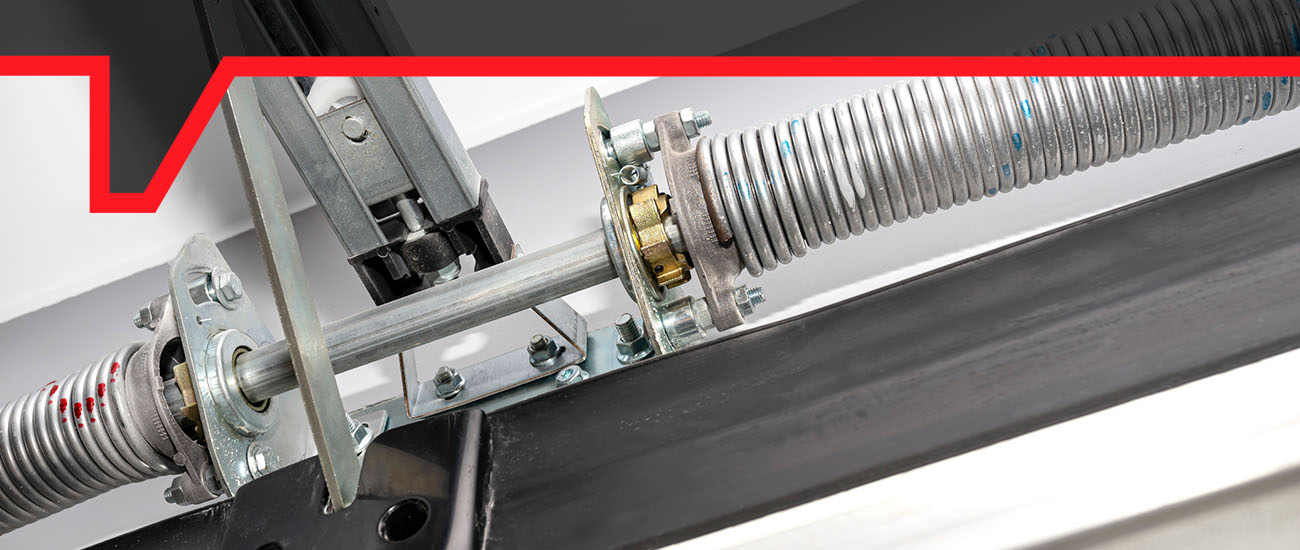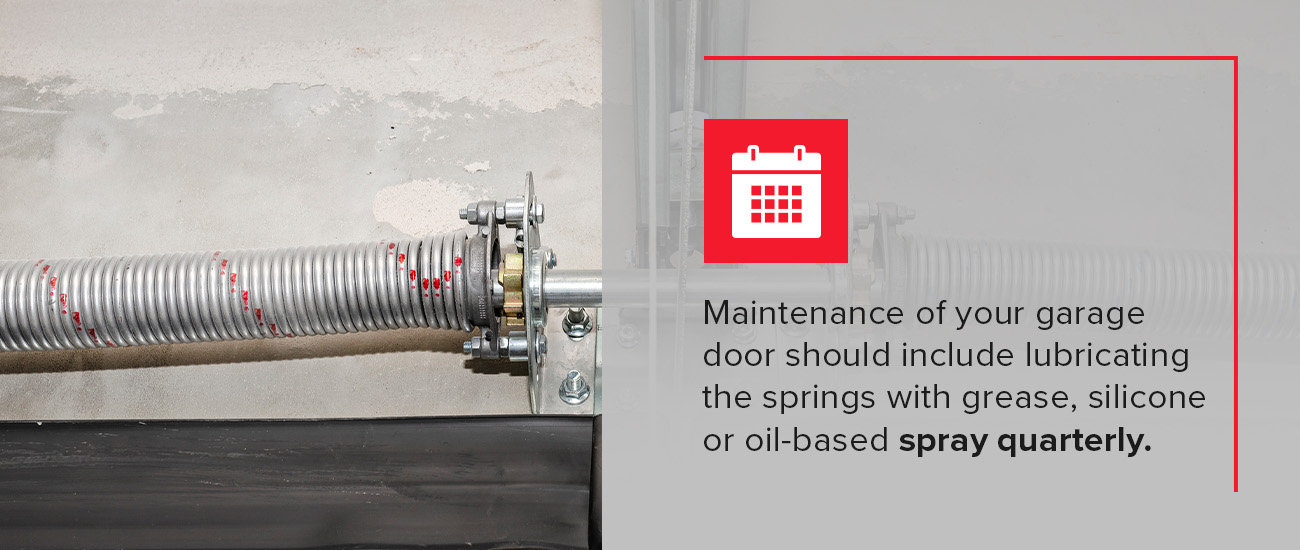Why Do Garage Door Springs Break?
A garage door spring is crucial in ensuring your garage door system runs and opens smoothly. When this spring breaks, it can cause you or your family members major inconvenience, especially when you’re in a hurry. The problem becomes more complex if you don’t know how garage doors work and what’s causing the issues. Understanding what causes garage door spring failure can help you quickly identify the problem if it occurs or implement measures to prevent spring breakage.
How Garage Door Springs Work
Springs allow the garage door to open and close, and it will not move smoothly if the springs break. There are two main types of garage door springs:
- Extension spring system: These spring systems are fixed on each side of the door track. With the assistance of pulleys and cables, these springs extend and contract when the garage door moves. This spring system is common on a solid tilt-a-door style door.
- Torsion spring system: The system uses one or two tightly wound springs. Two springs are typically used on larger doors. The lifespan of torsion springs is a key factor in the overall life expectancy of your garage door.
Whether your door has an extension system or a torsion system, the springs gain tension when the door is lowered. The tension is released when the garage door is lifted and the springs assist in the lifting. This means that the most tension in the springs happens when the garage door is closed. Your garage door is more likely to break when it’s in a closed position than when it’s open.
The following warning signs indicate that your garage door spring may have snapped:
- Loud noise
- The door becomes crooked when you try to raise it
- A gap in the springs
- The garage door jerks when going up and down
- The door goes up and down at a slower pace
- The door’s motor struggles to lift the door
- The door only opens a few inches
- There are loose cables
- You notice a bend at the top of the door
- The door could fall quickly
7 Common Causes of Broken Garage Springs
There are several reasons why your garage door spring may snap:
1. Wear and Tear
Most often, garage door springs break due to wear and tear. Most springs meant for residential garage doors are rated at 10,000 cycles. Once cycle is the garage door going up and down. The closer the door approaches the 10,000 cycle mark, the higher the chances of the springs breaking due to wear and tear.
Check for signs of wear and tear by inspecting the springs for any breaks or cracks. Overuse of the garage door causes excessive tension on the springs, leading to the weakening of the garage door springs and eventually breaking. It’s important to call a professional if you notice any signs of wear on your garage door spring, as attempting to resolve the issue yourself can be dangerous.
2. Rust and Corrosion
Springs are made of metal and their life span can be shortened by rust and corrosion. Metal corrosion occurs even faster in environments that are close to salty water. The rust weakens the coils of the springs and also increases friction. You can spray your door springs with lubricants at regular intervals to reduce squeaking and increase the spring’s life span.
3. Lack of Maintenance
Properly maintained garage doors can last longer than ones that don’t receive regular maintenance. Maintenance of your garage door should include lubricating the springs with grease, silicone or oil-based spray quarterly.
You should also perform yearly checks on the door’s balance. Open the garage door halfway and let go of it. If the springs are in good condition, the door should balance halfway. If the door drops, the springs need adjustments or replacement. This type of inspection alerts you when the springs are close to failing.
4. Improper Installation
A broken spring in your garage door could also be a result of improper installation. If the wrong size or type of spring was used when installing the door, the springs will not be able to handle normal use and it will wear out faster than expected. Improper installation may also lead to sudden failure due to excessive strain. You should only hire certified technicians to perform garage door installation and maintenance.
5. Extreme Temperature Changes
Extreme weather conditions can also cause problems with your garage door springs. During heat waves and cold snaps, the extreme temperatures can put stress on the springs. You should keep your garage well-insulated to prevent the springs from being exposed to these extreme weather changes.
6. Sudden Impact
Garage door springs can break if they’re hit with force or a sudden impact. Such scenarios occur when the door is hit by a car or if something falls on the door. Overloading the garage door can also cause stress to the springs.
7. Door Jams
Debris, grime and dirt can accumulate within the garage door track from time to time. A dirty track can cause jams and the jams will cause added stress to the springs over time. The added stress speeds up the wear and tear of the garage door springs.
How to Fix Broken Garage Door Springs
When your garage door springs break, the best course of action is to call professionals to do repairs or replacements. There are some simple checks and fixes you can do before you call a technician:
- Identify the type of springs: You should find out which type of springs you have on your garage door. Remember, there are only two types of springs — extension springs and torsion springs.
- Replace the springs: Because torsion springs contain a lot of energy, damage should be left to professionals to repair. The door should be closed completely when replacing torsion springs. Extension springs are safer and easier to replace. Keep the door open when replacing extension springs.
Can You Open a Garage Door With a Broken Spring?
You can use openers to lift a garage door with a broken spring, but you risk damaging the door and the operator. You should avoid opening a garage door with broken springs because there are chances the door might come crashing down. You should call technicians to either repair or replace the broken springs.
Get Spring Repairs Done by Valley Overhead Door
Valley Overhead Door offers expert residential garage door spring repair and maintenance services. Our expert garage door technicians have over 20 years of experience in the industry, and we are the only Clopay® dealer in the area. We help you with quality springs and replacement parts to ensure the longevity of your garage door system. For reliable repair service and spring replacement, you can request service online or call us at 541-926-3828.



